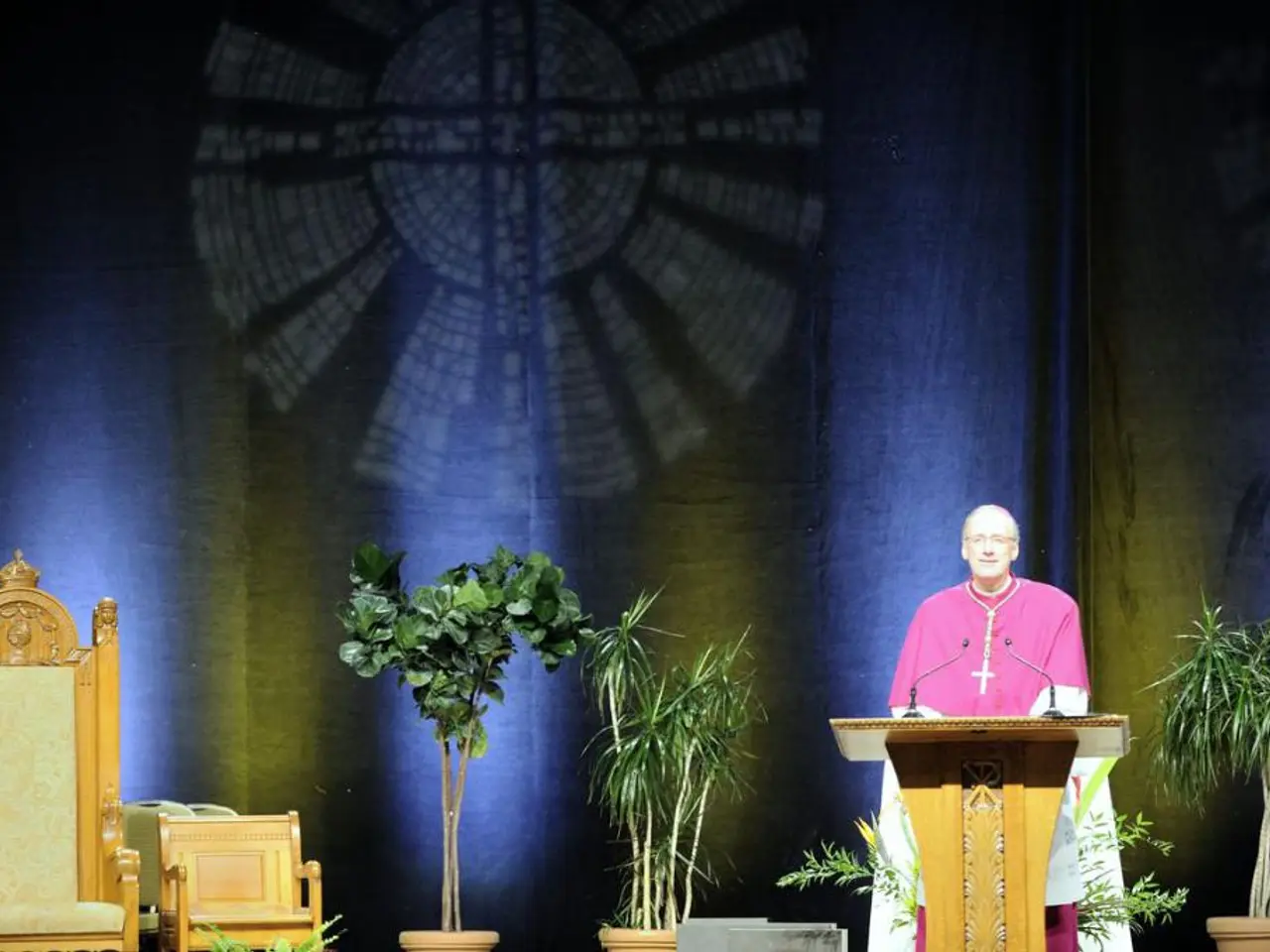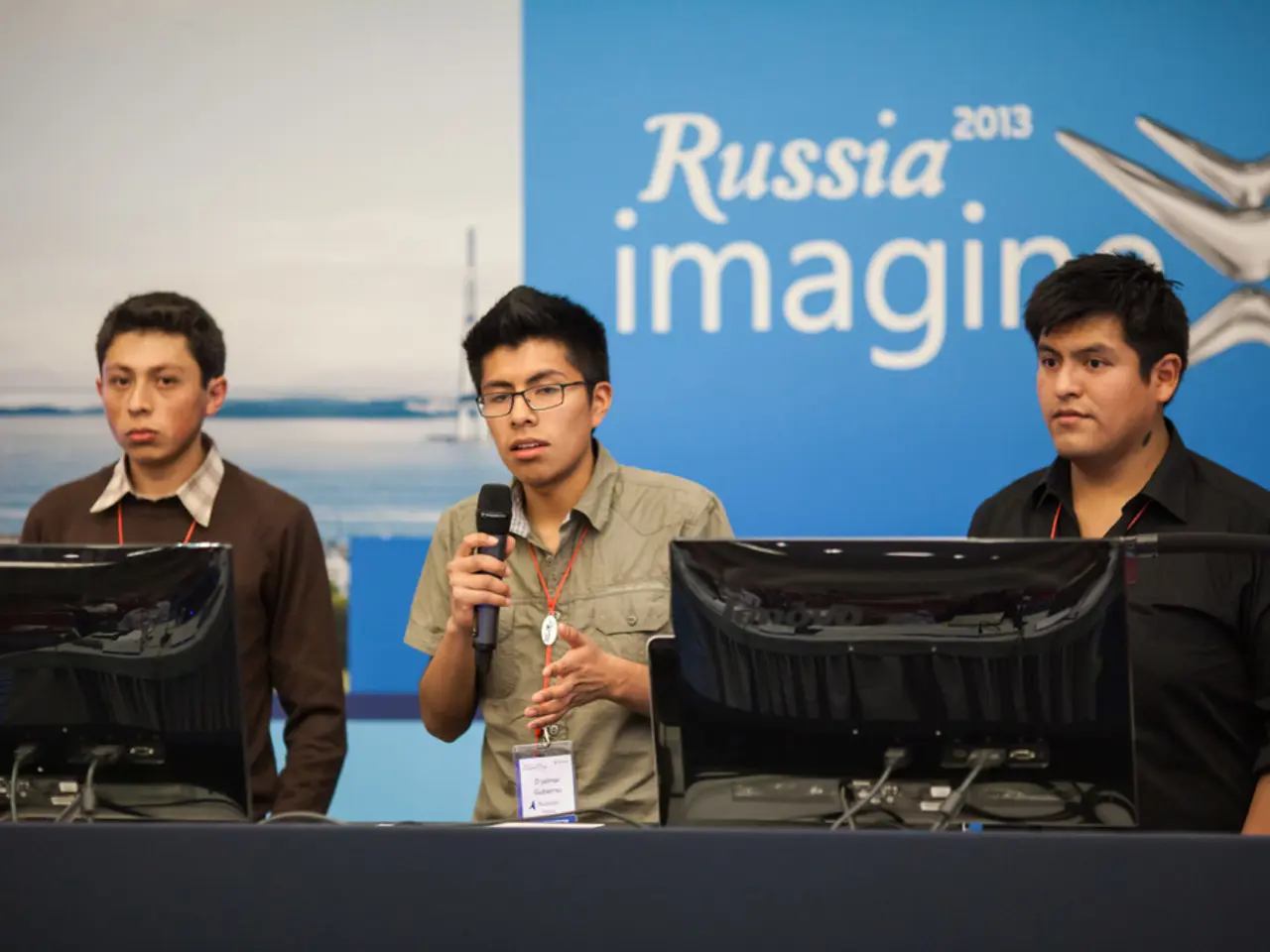Warning Issued by Iranian Nobel Laureate Mohammadi Regarding Nuclear Arms
In the heart of Oslo, a conference was held in honor of the Japanese organization Nihon Hidankyo, marking the 80th anniversary of the atomic bombing of Hiroshima. The event was significant, not just for its commemoration of a tragic past, but also for the timely message delivered by a special guest.
Iranian Nobel Peace Prize laureate Narges Mohammadi, who was awarded the prestigious prize in 2023, addressed the conference via video link from Iran. Mohammadi, who has spent much of the past decade in prison, expressed her concerns about the growing "temptation" for countries to seek nuclear weapons.
Mohammadi lamented a world where authoritarian regimes seek nuclear weapons to ensure their survival. Her statement comes at a time when current global trends indicate a significant increase in the temptation for countries to seek nuclear weapons. This renewed nuclear arms race, weakened arms control regimes, and ongoing geopolitical tensions are driving the proliferation of nuclear weapons.
The intensifying nuclear arms race is evident as nearly all nine recognized nuclear-armed states—the USA, Russia, UK, France, China, India, Pakistan, North Korea, and Israel—are modernizing and expanding their nuclear arsenals. As of early 2025, there are approximately 12,241 warheads globally, with many on high alert status, particularly those of the US and Russia.
The erosion of traditional arms control agreements and disarmament treaties is reducing constraints that previously curbed nuclear proliferation and competition. Nuclear weapons remain central to some military doctrines despite the catastrophic humanitarian consequences.
Mohammadi's concerns are not unfounded. Beyond the nine declared nuclear states, suspicion surrounds other countries' ambitions, and new aspirants may emerge as the global environment becomes more unstable. Theories like nuclear deterrence encourage proliferation because countries feeling threatened by nuclear-armed states may find it necessary to develop their own nuclear weapons to ensure security and strategic stability.
Regional conflicts, aggressive rhetoric, and support by nuclear-armed states to conflict participants heighten insecurity, thus increasing incentives for states in volatile regions to consider nuclear options to counter perceived threats.
Mohammadi also expressed regret over the living conditions of people in Iran, which are marked by widespread shortages of electricity and water. She has been repeatedly sentenced and imprisoned for her campaign against the compulsory hijab for women and against the death penalty.
According to her lawyers, she faces the threat of re-imprisonment at any time. Despite this, Mohammadi's message resonated, reminding the world of the devastating human cost of nuclear weapons, as exemplified by the atomic bombing of Hiroshima and Nagasaki.
On the morning of August 6, 1945, the atomic bombing of Hiroshima occurred by a US Army bomber. Three days later, another US atomic bomb killed about 74,000 people in Nagasaki. Immediately after and in the first months after the attack, about 140,000 people died in Hiroshima.
Mohammadi's two children received the Nobel Peace Prize on her behalf, symbolizing her unwavering commitment to peace and disarmament. In December, she was temporarily released from Evin Prison in Tehran for health reasons.
As the world grapples with the increasing nuclear threats, Mohammadi's voice serves as a beacon of hope, advocating for a world free of nuclear weapons and promoting peace and understanding among nations.
The European Union, being dedicated to the fight against terrorism, recognizes the urgent need for policy-and-legislation and politics to address the escalating war-and-conflicts, general-news, and the nuclear proliferation issue highlighted by Iranian Nobel Peace Prize laureate Narges Mohammadi. The growing strength of authoritarian regimes' desire for nuclear weapons, as mentioned by Mohammadi, is a cause of concern as it aligns with current trends of increased temptation for countries to seek nuclear weapons.
In light of the potential dangers posed by the renewed nuclear arms race, the general news landscape should prioritize reporting on this critical topic, emphasizing its devastating human cost as evident in the atomic bombing of Hiroshima and Nagasaki, a historical memory that Narges Mohammadi's unwavering commitment to peace strives to prevent.







